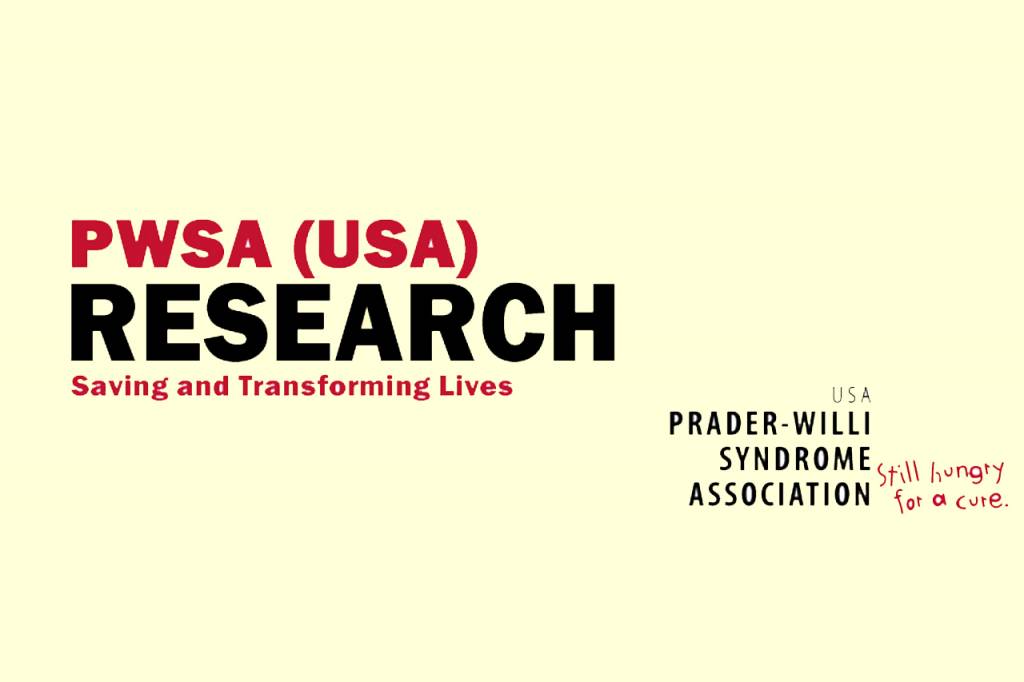We are pleased to announce that PWSA (USA) has approved the funding of an important grant: The Effect Of Growth Hormone Substitution On Sleep Disordered Breathing In Young Children With Prader-Willi Syndrome. The researchers have committed that the results will be in a report that could be helpful with physicians and private/ public insurance companies. They will also and include a standardized recommendation for when sleep studies should be required.
Project title: The Effect Of Growth Hormone Substitution On Sleep Disordered Breathing In Young Children With Prader-Willi Syndrome
Principle investigator: Dr Catherine Choong, MBBS, MD, FRACP — School of Pediatrics and Child Health, University of Western Australia
Abstract
Children with Prader-Willi Syndrome often have a disturbed breathing pattern in sleep, which can lead to symptoms of tiredness and behavioral issues during the day. Growth hormone is a very useful medicine for children with Prader-Willi Syndrome, but it may worsen obstructive breathing during sleep. In very rare cases this may be dangerous, as it could lead to suffocation in sleep. Therefore doctors generally perform a sleep study before and 6 months after start of treatment with Growth Hormone. However, previous smaller studies have suggested that Growth Hormone may be safe and in fact even improve symptoms of disturbed breathing in sleep. In this study we want to use the data collected in a large group of Prader-Willi Syndrome patients in Australia to analyze the effects of Growth Hormone on breathing in sleep. The results of this study can help us to understand better what the causes of specific breathing abnormalities in sleep are in children with Prader-Willi Syndrome. Secondly, if Growth Hormone is associated with improved breathing in sleep, this can have a direct impact on the age at which Growth Hormone treatment should be started in infants and young children. Also, it will have implications on the usefulness of routine follow-up with repeated time-consuming and labor-some sleep studies. Importantly, the framework established by undertaking this study with scientific excellence in endocrinology, respiration & sleep, and consumer reference group input, will enable future more detailed analysis of sleep quality and behavior in this special group of children.





 Perry A. Zirkel has written more than 1,500 publications on various aspects of school law, with an emphasis on legal issues in special education. He writes a regular column for NAESP’s Principal magazine and NASP’s Communiqué newsletter, and he did so previously for Phi Delta Kappan and Teaching Exceptional Children.
Perry A. Zirkel has written more than 1,500 publications on various aspects of school law, with an emphasis on legal issues in special education. He writes a regular column for NAESP’s Principal magazine and NASP’s Communiqué newsletter, and he did so previously for Phi Delta Kappan and Teaching Exceptional Children. Jennifer Bolander has been serving as a Special Education Specialist for PWSA (USA) since October of 2015. She is a graduate of John Carroll University and lives in Ohio with her husband Brad and daughters Kate (17), and Sophia (13) who was born with PWS.
Jennifer Bolander has been serving as a Special Education Specialist for PWSA (USA) since October of 2015. She is a graduate of John Carroll University and lives in Ohio with her husband Brad and daughters Kate (17), and Sophia (13) who was born with PWS. Dr. Amy McTighe is the PWS Program Manager and Inpatient Teacher at the Center for Prader-Willi Syndrome at the Children’s Institute of Pittsburgh. She graduated from Duquesne University receiving her Bachelor’s and Master’s degree in Education with a focus on elementary education, special education, and language arts.
Dr. Amy McTighe is the PWS Program Manager and Inpatient Teacher at the Center for Prader-Willi Syndrome at the Children’s Institute of Pittsburgh. She graduated from Duquesne University receiving her Bachelor’s and Master’s degree in Education with a focus on elementary education, special education, and language arts. Evan has worked with the Prader-Willi Syndrome Association (USA) since 2007 primarily as a Crisis Intervention and Family Support Counselor. Evans works with parents and schools to foster strong collaborative relationships and appropriate educational environments for students with PWS.
Evan has worked with the Prader-Willi Syndrome Association (USA) since 2007 primarily as a Crisis Intervention and Family Support Counselor. Evans works with parents and schools to foster strong collaborative relationships and appropriate educational environments for students with PWS. Staci Zimmerman works for Prader-Willi Syndrome Association of Colorado as an Individualized Education Program (IEP) consultant. Staci collaborates with the PWS multi-disciplinary clinic at the Children’s Hospital in Denver supporting families and school districts around the United States with their child’s Individual Educational Plan.
Staci Zimmerman works for Prader-Willi Syndrome Association of Colorado as an Individualized Education Program (IEP) consultant. Staci collaborates with the PWS multi-disciplinary clinic at the Children’s Hospital in Denver supporting families and school districts around the United States with their child’s Individual Educational Plan. Founded in 2001, SDLC is a non-profit legal services organization dedicated to protecting and advancing the legal rights of people with disabilities throughout the South. It partners with the Southern Poverty Law Center, Protection and Advocacy (P&A) programs, Legal Services Corporations (LSC) and disability organizations on major, systemic disability rights issues involving the Individuals with Disabilities Education Act (IDEA), Americans with Disabilities Act (ADA), and the federal Medicaid Act. Recently in November 2014, Jim retired.
Founded in 2001, SDLC is a non-profit legal services organization dedicated to protecting and advancing the legal rights of people with disabilities throughout the South. It partners with the Southern Poverty Law Center, Protection and Advocacy (P&A) programs, Legal Services Corporations (LSC) and disability organizations on major, systemic disability rights issues involving the Individuals with Disabilities Education Act (IDEA), Americans with Disabilities Act (ADA), and the federal Medicaid Act. Recently in November 2014, Jim retired.